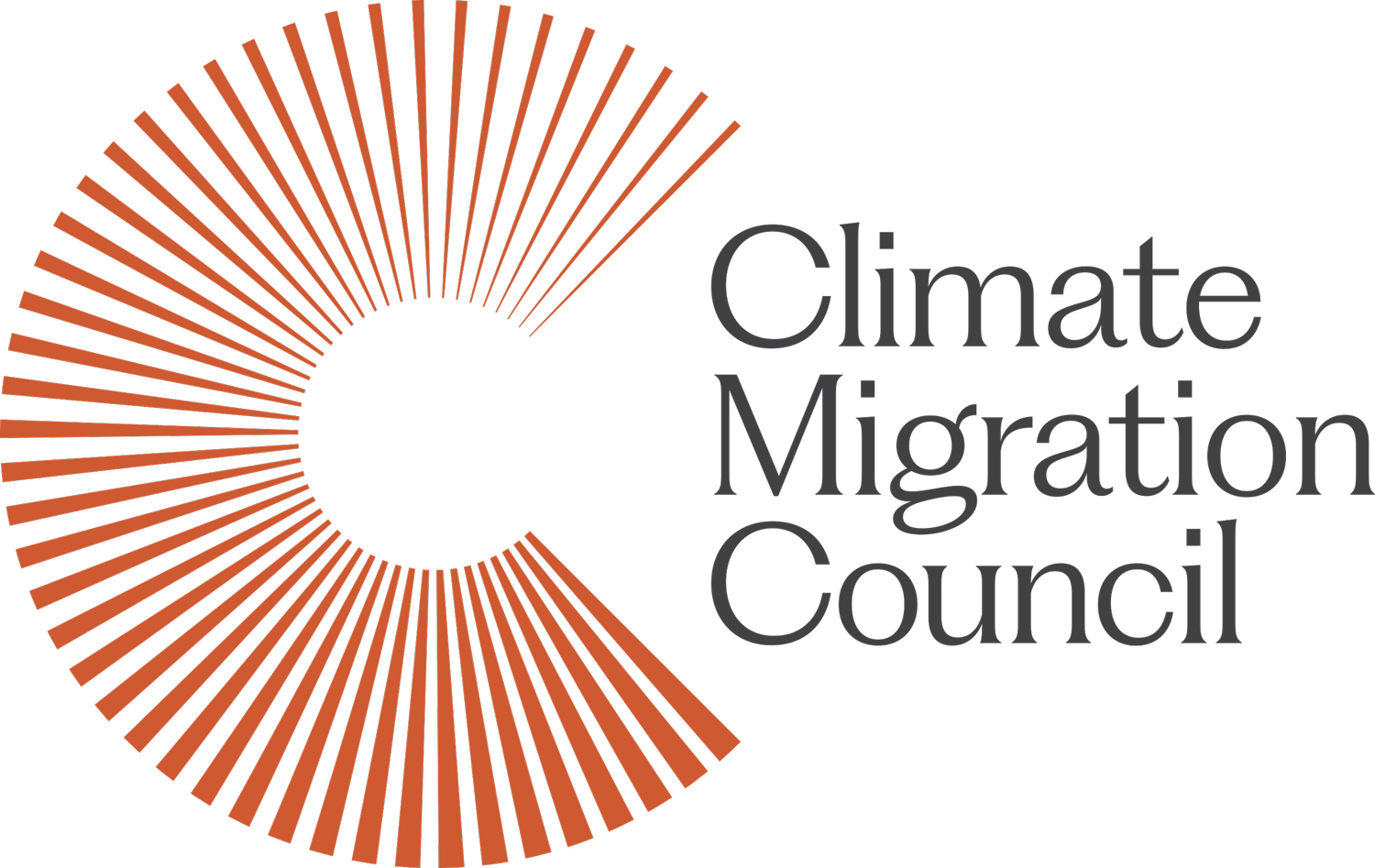Advancing Climate Mobility Solutions: Highlights from COP29
BAKU – The Climate Migration Council returned to the 2024 United Nations Climate Change Conference (COP29), marking the coalition's third consecutive year in attendance. While climate migration discussions were notably absent from the agenda at the summit just two years ago, human mobility has evolved into a prominent point of emphasis, with policymakers, activists, and global leaders acknowledging the urgent need to address the challenges caused by climate displacement.
Building on this momentum, the Council brought leaders together through high-level events and discussions that prioritized the integration of human mobility considerations into climate finance negotiations and beyond. CMC members, including Adelle Thomas, Matthew Scott, Collette Pinchon Batters, Fred Krupp, Amy Pope, Michael Werz, President Surangel S. Whipps, Mark Watts, Manish Bapna, and Carlos Alvarado Quesada, contributed to rich and deep discussions of a wide variety of mobility-related topics, including adaptation, capacity-building, and gender equality in climate justice.
The Council participated in a panel titled Means of Implementation for the Transition: A New Priority for Business, which emphasized the role of labour mobility and migration in addressing global skills shortages that could hinder the green energy transition. This event featuring Shana Tabak (Director of Immigration Strategy, Emerson Collective and Advisor to the Climate Migration Council) provided a look into the C40 Cities Climate Leadership Group, the Mayors Migration Council, and the Climate Migration Council’s collaborative report titled Good Green Jobs and Labour Migration Opportunities for Urban Leaders. This resource highlights the economic and social benefits of investing in diverse and inclusive workforces to accelerate the adoption of green technologies and sustainable business practices. The panel was moderated by Robert Marinkovic (International Organisation of Employers), and other participants included Brian Mantlana (South African Presidential Climate Commission), Will Symons (Deloitte Asia Pacific Sustainability), Chandan Goswami (Jackson Group) and Paul Smith (United Nations Environment Programme Finance Initiative).
The following day, climate migration was again featured on a panel discussion that explored the intersection of human rights and climate justice. Expert panelists including Carolina Fuentes Castellanos (Director of the Santiago Network), Paula Gaviria Betancur (Special Rapporteur of the Rights of IDPs), Reena Ghelani (United Nations Assistant Secretary-General, Climate Crisis Coordinator for the El Niño and La Niña responses), and Stewart Maginnis (Deputy Director General at IUCN, International Union for the Conservation of Nature) provided insights on the rights of internally displaced people, developments associated with the El Niño and La Niña climate patterns, and ways conservation can support ecosystems and livelihoods for vulnerable people. Shana Tabak, Advisor to the CMC, moderated the panel. The session concluded with testimony from Yemi Knight (IOM Youth Representative and Co-founder of AnchorBridge Environmental), who shed light on the intersectionality of climate impacts, particularly on young women and the LGBTQIA+ community.
That evening, during COP29’s Peace, Relief, and Recovery Day, the Council brought together its members and colleagues to discuss priorities, learnings, and hopes for this year’s climate negotiations and the continued inclusion of climate mobility. The event highlighted the release of the Council’s Position Statement on Security and Climate Mobility, authored by the CMC’s National Security Working Group. This resource offers security actors across the globe five recommendations to redefine “security” in a manner that encompasses the breadth of challenges posed by a changing climate, specifically covering the habitability challenge, displacement examples, and the geopolitical argument for preventative action.
Finally, the International Organization for Migration (IOM) and the COP Azerbaijan Presidency organized a high-level panel discussion at the COP Presidency Pavilion featuring Carlos Alvarado Quesada (CMC founding member and former President of Costa Rica), who gave a keynote address at a roundtable discussion titled Strengthening Global Cooperation on Integrated Solutions for Human Mobility in the Context of Climate Change. In an emotional speech, President Alvarado shared his journey as a climate mobility advocate, emphasizing the importance of empathy in shaping international climate policies. He highlighted the profound value of educational resources such as the Climate Migration Council’s Compendium on Climate Mobility and the Green Jobs and Labour Mobility report in guiding actionable solutions.
While COP29's broader climate negotiations left room for further progress in delivering financing responses to the climate crisis, the Council celebrates the significant achievements of its members and the strides made in placing people at the center of climate action and advancing global solutions to climate migration.
About the Climate Migration Council
Formed by a coalition of elected officials, business leaders, academics, and advocates, the Climate Migration Council is committed to putting people at the center of climate action and supporting global solutions to the climate crisis, migration, and climate migration. To learn more, please reach out to press@climatemigrationcouncil.org or visit www.climatemigrationcouncil.org.


